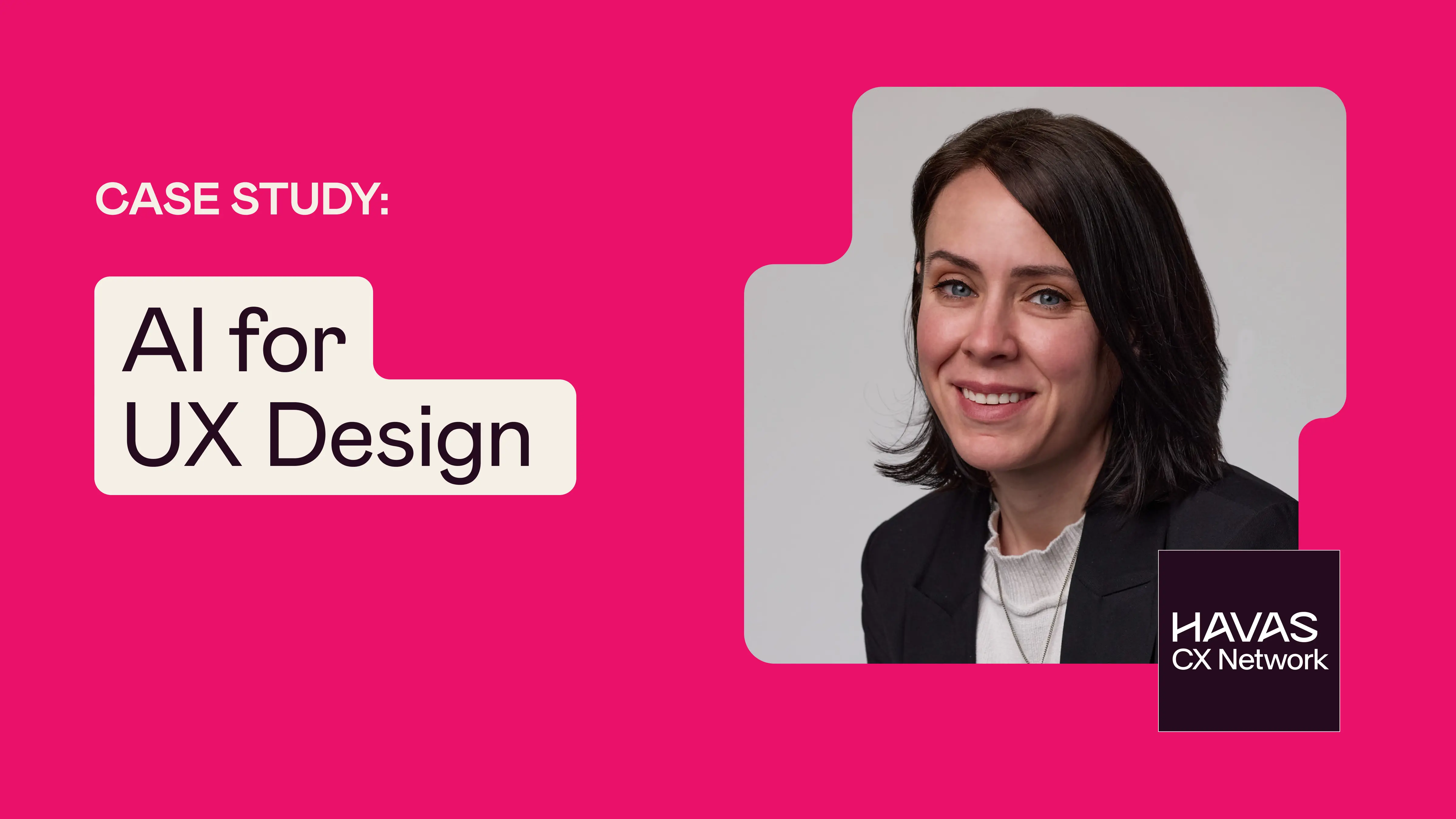Kathy Mirescu, Senior Manager of UX Design at Salesforce, wanted to transform how her team approached design decisions. Working within Salesforce's IT organization, she saw an opportunity to bring more data-driven practices to her team's work. After completing Designlab's Data-Driven Design course, she's better equipped to measure success and demonstrate her team's value through concrete metrics.
Background and Current Role
At Salesforce, Kathy leads a team of five designers and multiple contractors within what she describes as a "company within a company." Her department serves 2,000-3,000 internal employees, focusing on applications that impact both internal operations and customer experiences through help and training portals.
"We work on applications for internal employees and customer impact," Kathy explains. With seven years of experience at Salesforce under her belt, she's seen firsthand the nuances of implementing data-driven practices in a large enterprise environment.
Why Data-Driven Design?
For Salesforce, being data-driven in decision-making poses unique challenges. Privacy concerns affect instrumentation, and the company's scale makes establishing an experimentation culture less straightforward than at a 10-person startup. However, Kathy saw these challenges as opportunities for growth.
"I'm passionate about moving the team towards a more data-driven approach and demonstrating value in concrete terms, beyond just high-level business metrics," she shares. Kathy proactively seeks out training and growth opportunities to support both her team and her ongoing career growth, having taken a few leadership and development programs in the past. When she learned about Designlab's Data-Driven Design course through an info session, she knew it aligned perfectly with her professional development goals and her vision for the team.

The Learning Experience: A Perfect Balance
From the moment Kathy began the course, she appreciated how it was focused on designers. "The branding and look and feel felt tailored for designers," she notes, contrasting it with other platforms where navigation can be confusing.
The course structure particularly resonated with her busy schedule. While some might see the limitation of accessing one module at a time as restrictive, Kathy found it helped maintain focus. The combination of asynchronous communication with mentors and limited face-to-face time proved ideal for her working style.
"I got more out of the focused weekly peer group time than I would have from a sprawling course with various sessions," she reflects. The course content was efficient and well-curated, providing enough depth without overwhelming participants.
The Value of Expert Mentorship
One standout aspect of the course was the quality of mentorship. Kathy was impressed by the vetting process for instructors, noting that her mentor Matthew Schneider, "really knew what he was talking about."
[Our mentor] was good at using prompts to stimulate the discussion, and there was freedom for us to bring our own personal situations at work into the conversation.
Matthew’s ability to stimulate meaningful conversations and adapt to participants' needs enhanced the learning experience. “He was good at using prompts to stimulate the discussion, and there was freedom for us to bring our own personal situations at work into the conversation.”
With that flexibility to bring real-world situations into discussions, the learning immediately felt applicable to her work at Salesforce. Kathy found the course length ideal at 6 weeks and 3-5 hours/week, especially when compared to other professional development programs she'd experienced.
Immediate Impact on Work
The timing of the course couldn't have been better. As Salesforce leadership was increasingly interested in case studies showing quantitative value, Kathy gained the tools to meet this need.
"While experimentation content might be tricky to apply in our current environment, the course helped enhance my literacy around metrics," she explains. The program provided a solid foundation in growth design concepts and improved her ability to make projects more measurable with strong narratives.

Transforming Team Dynamics
Since completing the course, Kathy has been better positioned to vet projects and determine their value. While she describes coaching her team and shaping org best practices as a "work in progress," she feels more equipped to foster a data-driven mindset within a culture ripe for that approach.
The impact extends beyond immediate metrics. Kathy has gained a deeper understanding of measuring success and making projects more measurable, skills that are increasingly valuable as Salesforce evolves its approach to design evaluation.
Looking Forward
For designers looking to enhance their data-driven capabilities, especially within large enterprises, Kathy's experience demonstrates how Designlab's course can bridge the gap between design intuition and quantifiable results. The program's combination of focused content, expert mentorship, and practical application makes it particularly valuable for design leaders looking to drive organizational change.
Want to grow your skills and confidence working with data in your design work? Learn more about our Data-Driven Design course.



.svg)














